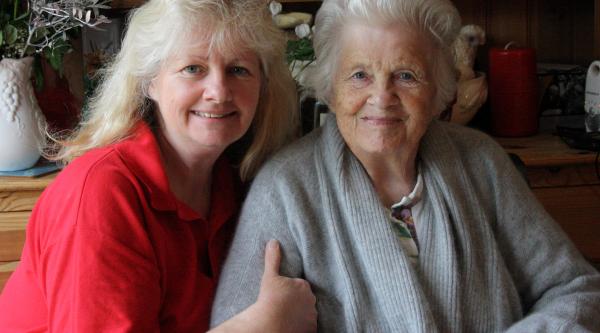
Research
5 reasons to become a Research Network volunteer
Research Network volunteer Keith Newbegin shares how his experience of caring for his wife has helped inform Society-funded research.
1. You already have the skills and knowledge
The first-hand experience you have of dementia is invaluable to scientists. I am an electrical engineer by profession, was a senior manager with BT and am now part time director of a construction company. Not exactly medical, but I have found no problems in understanding the lay explanations of research projects and rating them.
2. You will learn a lot about dementia
My understanding of dementia is vastly enhanced by reading about research projects and I have been able to help people who are starting the dementia journey with a loved one. You now have not only personal experience but improved knowledge of the different types of dementia and can explain to people what might happen. You can also refer them to the Society for professional support.
3. You will meet experts in the field
After some experience of rating research projects, you can volunteer to monitor a project you are interested in. One of the great benefits of being a Research Network volunteer is attending meetings with the scientists involved who go through their work with you and share success and failure. I have been amazed at how clever these people are.
It is uplifting to meet PhD students who do brilliant work and hopefully it is this generation who will find cures for dementia.
4. Researchers value your input
Researchers often have to present to lay audiences and some find it difficult to put very complex science into an understandable format. Your feedback on their lay proposals helps in doing that.
One student used my late wife’s experiences in their research into Lewy Body dementia to shape the presentation of their findings to the Society’s annual meeting.
5. You can help ensure that others don’t have the negative experiences you have had
I suspect many Research Network volunteers have experienced the trauma of a loved one having dementia. I went through this with my late wife from early memory problems to serious mixed dementia at a relatively young age.
The difficulties in caring at home, then the hardest decisions anyone has to make, putting someone into residential care and then end of life management. We suffered a terrible service from the NHS, resulting in an upheld Ombudsman’s complaint. Major improvements came following the complaint, which convinced me that we can make a difference.
Become a Research Network volunteer
If you have lived experience of dementia, you can join our Research Network and help us make sure that we fund the research that really matters to people affected by dementia.



